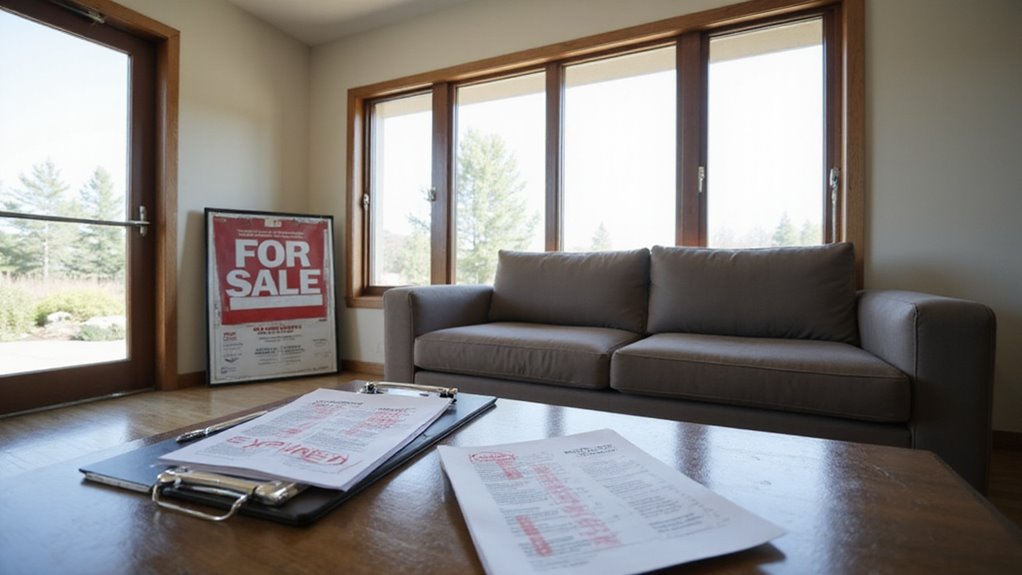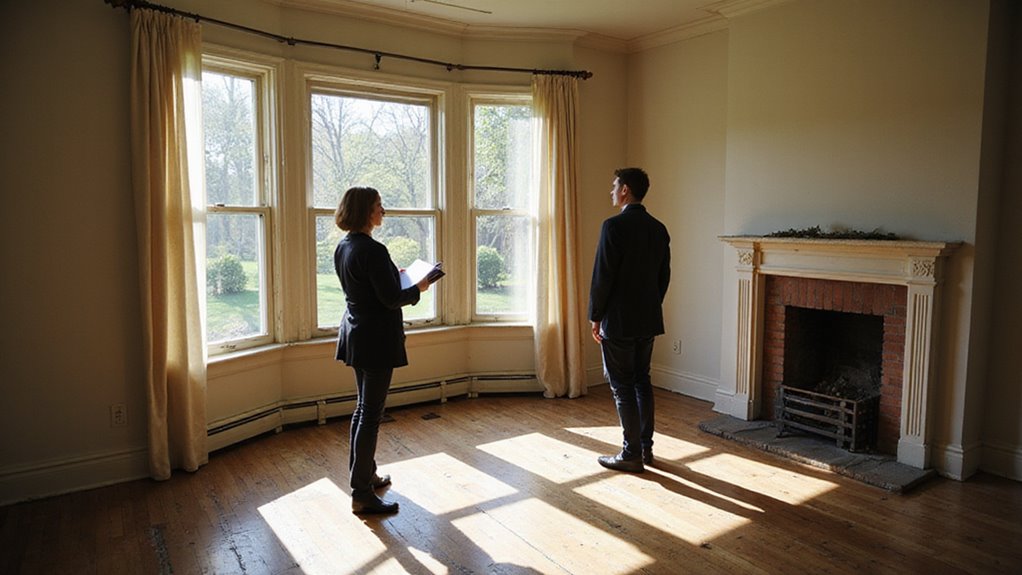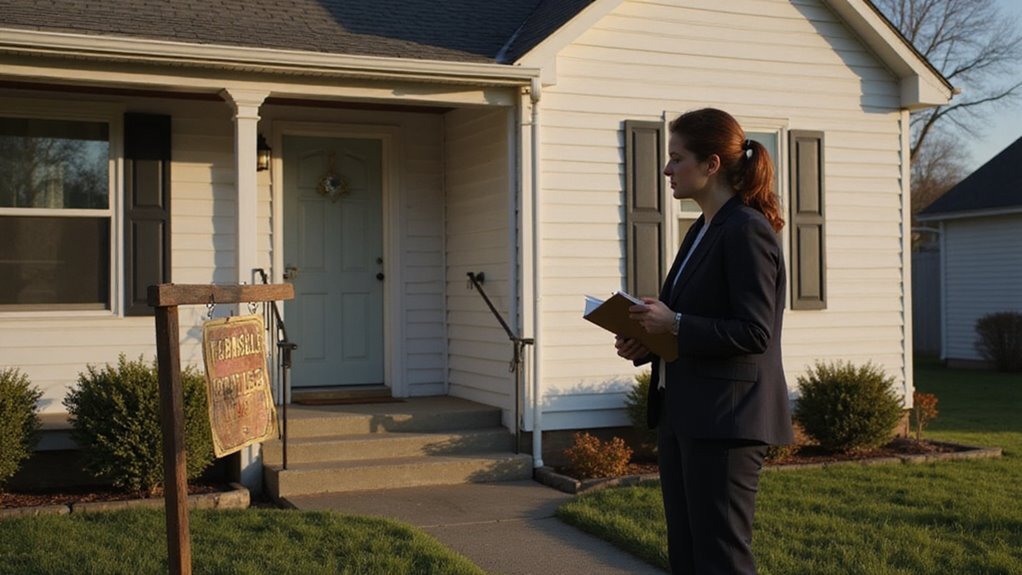Selling a home is tough, and an expired listing can feel like a major setback. You expected offers, but now your property is off the market. This leaves you wondering what went wrong and what to do next.
An expired listing is more than just a pause—it’s a sign something needs changing. Maybe the price was too high or buyers couldn’t find your home online. Ignoring these signals can mean more time, stress, and money lost.
The solution often starts with a price adjustment. If your home listing has expired, lowering the price is usually a smart move. This blog will guide you through the steps to sell your home after an expired listing.
Key Takeaways
- Lowering the price after an expired listing often attracts renewed buyer interest and signals seller motivation.
- Homes that remain at the same price after relisting are perceived as stale and less attractive to buyers.
- Reviewing recent comparable sales helps determine an appropriate new price that aligns with current market value.
- Small price reductions, especially just below round numbers, can generate more attention and show buyers you’re serious.
- If your home received few showings or offers, a price reduction is usually necessary to improve the chances of selling.
Understanding Why Listings Expire

Listings expire when homes do not sell within the contract period. This usually happens because of high prices, weak marketing, or bad property condition. If these issues exist, homes attract fewer buyers.
Buyers compare your home’s price to others nearby. If your price is too high, buyers may lose interest quickly. Good pricing is key to selling fast. Additionally, understanding the impact of a stepped-up basis on inherited properties can help sellers price homes more competitively and minimize tax-related surprises during the sale.
Seller motivation can also affect the sale. If sellers refuse to lower prices or respond slowly, buyers might walk away. Overpriced homes often stay on the market much longer.
The National Association of Realtors says overpriced homes take 30% longer to sell. Understanding these reasons helps you improve your selling strategy. If you address these problems, your listing has a better chance of selling.
When a listing expires, it’s helpful to look at neighborhood comps to see how similar homes are priced, since recent sales in your area can strongly influence buyer interest and perceived value.
Evaluating Your Local Market Conditions
You must first look at your local market before changing your price after a listing expires. Local market data helps you set a price that fits buyer expectations. If you skip this step, you may miss important trends.
Recent sales of similar homes show what buyers are willing to pay. You should check how long listings like yours stay on the market. Current inventory levels can affect how quickly homes sell. Reviewing competitive cash offers received by similar properties can also help you gauge where your price should be.
Price changes in the last few months reveal if prices are going up or down. Buyer activity and feedback from open houses also give clues about your price. If you use these facts, your next price will be more competitive. If your listing hasn’t received much attention, it’s possible that limited exposure is making it harder for buyers to find your home, so consider boosting your marketing efforts in addition to adjusting price.
Assessing the Original Listing Price

Start by comparing your home to recent market sales to see if your original price aligned with actual data. Review your initial pricing strategy to identify any gaps or missed opportunities. Use insights from a professional appraisal to confirm or adjust your home’s value before relisting.
You can also strengthen your future sale by considering how all-cash offers could impact your negotiations and timeline. It’s also helpful to research the local market and consider how current trends or comparable properties might influence your updated pricing approach.
Market Comparables Analysis
A market comparables analysis helps you see if your price was too high. It compares your home to similar houses that recently sold. This shows if your listing price matched the current market.
You should find at least three homes sold in the last 90 days. Compare their size, condition, location, and features with yours. Note any differences that may affect value.
Check if those homes had lower prices before selling. See how long they were listed before being sold. If your home was priced higher or stayed on the market longer, buyers may have lost interest.
Review the actual selling prices instead of just the listing prices. This gives a clear picture of what buyers are willing to pay. If your price was higher than these, you may need to adjust.
Pricing Strategy Review
A pricing strategy review checks if your listing price matched the current market. You should rely on sales data and buyer trends. If the price is too high or too low, it will affect your results.
Small price changes, like $499,900 instead of $500,000, can attract more buyers. Odd or slightly lower numbers often feel like better deals. If your home stayed unsold, you may need to adjust your price.
Here is a summary table for quick reference:
| Factor | Impact on Sale Outcome |
|---|---|
| Above Market Price | Fewer showings, fewer offers |
| At Market Price | Steady interest |
| Below Market Price | More traffic, faster offers |
| Odd Pricing ($499K) | More attention |
You can use this information to improve your pricing plan before you relist. If you change your price, it may help your home sell faster.
Home Appraisal Insights
Your original listing price may not have matched your home’s true market value. If your listing expired, reviewing the numbers is important. A home appraisal gives you clear and unbiased information.
You should compare your price to similar homes sold recently. If there is a big gap between your appraisal and list price, note it. Unique features in your home can increase or lower its value.
Market trends and buyer interest often change, so check for shifts. Pricing that seems random can make buyers unsure. If your price appeared too high, buyers may have ignored your listing.
Reviewing Your Home’s Presentation

You should analyze your home’s presentation, as properties with strong curb appeal, modern staging, and professional photos statistically attract more buyer interest and higher offers. Data shows that updated interiors and quality images can cut time on market by up to 32%.
Enhancing your property’s curb appeal can contribute up to 7 percent to your home’s value, giving you a strategic advantage in a competitive market. By addressing these factors, you’ll increase your chances of a successful sale even after a price reduction. Improving your home’s presentation can also help minimize financial risks and uncertainties associated with traditional sales, such as deal failures or buyer financing issues.
Enhancing Curb Appeal
Enhancing curb appeal means making your home’s exterior look its best. A good first impression can help your house sell faster and for more money. If you want better offers, start by improving how your home looks from the street.
Sellers often forget curb appeal after a listing expires. You should focus on your home’s outside before lowering the price. Most real estate agents agree that curb appeal raises your home’s value.
If you want to increase value, consider simple landscaping upgrades. Power washing walkways and siding makes everything look cleaner. Painting or replacing your front door can give your entry a fresh look.
Virtual staging can make your exterior photos more attractive online. If you keep your lawn neat and trim shrubs, your yard will look well cared for. Try these steps before making any price changes.
Updating Interior Staging
Proper interior staging helps buyers picture themselves living in your home. If you stage your home well, buyers usually show more interest. Staged homes often get higher offers.
Start by checking if your furniture and décor make the home look crowded or old. You should remove extra items and use neutral colors. This makes rooms look bigger and more welcoming.
If the home is empty, virtual staging can show buyers how each room could look. Virtual staging is also helpful for homes with unusual layouts. This option costs less than renting furniture.
Updated staging can increase your home’s value in the eyes of buyers. If you stage well, you may sell faster and avoid lowering the price. Thoughtful staging is often more effective than reducing your asking price.
Improving Listing Photos
High-quality listing photos help attract more buyers and increase the chances of selling your home. Good photos can make your property stand out online. If you want more showings, start by improving your listing images.
Natural lighting makes rooms look bigger and more inviting. Wide-angle shots help show the true size of each room. Removing clutter and personal items helps buyers imagine living there.
Close-up shots can highlight special features or upgrades. If the season changes, update your photos to keep your listing fresh. Strong photos can help you get better offers from serious buyers.
Analyzing Marketing and Exposure Efforts

Before lowering your price after an expired listing, first check how well your home was marketed. Look at details like online views, click rates, and feedback from showings. These facts help you see if enough buyers noticed your home. If your listing did not include a virtual tour, consider adding one. Homes with virtual tours often get more attention online. Good photos and videos can also make your listing stand out.
Remember, high-quality photos that focus on unique features can attract more buyers and increase your chances of a successful sale. Review your social media efforts. If you did not use Facebook, Instagram, or paid ads, you may have missed many buyers. Compare your marketing to similar homes in your area. If you find weak spots, try improving your marketing before cutting the price. Better marketing may bring new interest from buyers. Use data to choose your next steps instead of guessing. Additionally, working with a reputable cash buyer can streamline your transaction and help you respond more effectively to market feedback.
Considering Seasonal Impacts on Selling
You need to account for seasonal shifts in market trends, as buyer activity often peaks in spring and slows during winter months. Data shows that homes listed during high-activity periods typically sell faster and at stronger prices. By timing your re-listing strategically, you increase the likelihood of attracting motivated buyers and minimizing further price reductions.
For example, putting off unnecessary cosmetic repairs can help you focus your resources on timing and presentation instead of investing in low-return upgrades. In particular, understanding the impact of springtime timing considerations can help you take advantage of peak buyer demand and optimal selling conditions.
Market Trends by Season
Shifting seasons affect your chances of selling after a listing expires. Certain times of the year bring more buyers, while others slow down sales. Knowing seasonal market trends helps you plan your next steps.
Spring usually has more buyers and higher prices, especially for luxury homes. Summer often has more listings, so prices must stay competitive. Fall has less competition, but buyer activity also drops.
Winter is usually slow, but buyers tend to be serious. If you study local data, you can adjust your pricing to fit the season. Careful analysis of seasonal trends can improve your selling strategy.
Buyer Activity Fluctuations
Seasonal market trends cause buyer activity to rise and fall throughout the year. In busy spring and early summer, more buyers look for homes, especially luxury ones. During winter, interest in fixer uppers often increases as investors and bargain hunters enter the market.
The National Association of Realtors reports that buyer urgency changes with the seasons. This change affects how quickly a relisted property can attract attention. If your expired listing was for a specific type of home, check recent activity for that segment.
You should adjust your expectations based on these patterns. If you understand these trends, you can plan your next steps calmly. Responding to market changes helps you avoid making emotional decisions after your listing expires.
Optimal Listing Timing
The timing of your home listing can affect how quickly and profitably you sell. If you relist right away after an expired listing, you may not get the best outcome. Waiting for the right season can increase your chances of success.
Spring and early summer usually bring the most buyers and faster sales. Winter often has fewer buyers, but those looking are usually serious. If you list during slower months, you need a strong pricing strategy to attract attention.
Price matters more in off-peak seasons, and overpricing can lead to your home sitting unsold. Negotiation becomes more important when buyers expect deals during slow periods. You should study local sales data to choose the best time to relist your property.
Gathering Feedback From Agents and Buyers
After your listing expires, you should collect feedback from both agents and buyers. This helps you understand why your home did not sell. Careful feedback review can reveal the main reasons for low interest. Reviewing recent cash-buying transactions in your area can also provide insight into local market trends and how your property compares.
Agents and buyers may think your price did not match similar homes. You should ask specific questions about price and value to get clear answers. If you notice many similar comments, this could show a common concern.
Negotiation attempts, like counteroffers or incentives, may not have worked. If these did not attract offers, you need to know why. This information can guide your next steps.
If you study the feedback, you can see if price, presentation, or the market was the problem. Any changes you make should be based on what buyers and agents actually said. This will help you plan your next move and improve your chances.
Sometimes, feedback will reveal issues like neglecting home repairs, which can impact buyer perception and should be addressed before relisting your property.
Re-examining the Condition of Your Property

Property condition can impact how quickly your home sells. If your home looks outdated or poorly maintained, buyers may lose interest. Even if your price matches the market, condition matters.
Buyers notice flaws right away and may lower their offer. They often subtract more than the actual cost of repairs. This can make your home less competitive compared to others.
You can take simple steps to fix this. If you update old fixtures or lighting, buyers see more value. Deep cleaning and decluttering also improve your home’s appearance.
If you handle small repairs and improve curb appeal, your home stands out. Fresh paint and tidy landscaping make a strong first impression. Staging key rooms can help buyers imagine living in your home.
If you focus on these upgrades, your property may attract more buyers. Better condition increases both value and visibility. Neglecting repairs can significantly impact a buyer’s first impression and should be addressed before relisting to avoid turning off potential buyers. These changes can help your home sell faster.
Exploring Alternative Selling Strategies
If your listing has expired, you should try different selling methods to attract buyers. Analyzing recent sales data can show you what works in your area. Picking the right strategy can improve your chances of selling.
When your listing expires, exploring new selling strategies and reviewing local sales data can boost your chances of success.
You can set your price just below a round number to make it more appealing. Offering limited-time incentives may create a sense of urgency for buyers. Highlighting special features of your property can also help it stand out.
Professional photos and virtual tours can show your home at its best. Targeted social media ads can reach more potential buyers. If you update your home’s presentation, it may better appeal to your target buyers.
Using both data and buyer psychology helps boost interest in your property. These steps can increase your chances of making a sale. If you combine these strategies, you are more likely to succeed.
The Risks of Re-listing at the Same Price
If you re-list your property at the same price, buyers may view it as stale, which typically leads to a sharp decline in interest. Data shows that homes lingering on the market often end up with longer selling timelines and lower final sale prices. To maximize your results, you need to address these risks head-on.
Stale Market Perception
A home listed again at the same price often seems less attractive to buyers and agents. This can make people think there are problems with the home’s value or condition. If a property sits too long, it can lose interest and influence in the market.
Repeated views of the same listing can make buyers feel less urgency to act. Buyers might wonder why the home did not sell before. Agents could move their focus to newer or easier listings.
If a home is on the market for too long, it often receives lower offers. Days-on-market numbers may warn serious buyers. Sellers could lose power when negotiating the price.
Reduced Buyer Interest
Relisting a property at the same price usually lowers buyer interest. Most buyers lose enthusiasm when a home returns to the market without a price change. If a property sits unsold and comes back at the same price, buyers may ignore it.
Market trends show fewer people inquire about these homes. There is also less traffic for showings. Buyers often believe the property is overpriced or has issues if the price does not change.
If the price remains the same, buyers might think there is little room for negotiation. An unchanged price sends a signal that the seller is not flexible. This can result in fewer offers or even no offers at all.
Prolonged Selling Timeline
Re-listing your home at the same price can slow down the selling process. Buyers and agents notice when a property stays on the market too long. This often leads them to question if something is wrong with the home.
If you do not lower the price, buyers may think you are unwilling to negotiate. This could make them less likely to make strong offers. Agents might use this to push for even lower prices.
Homes with price reductions seem more appealing compared to stagnant listings. An unchanged price can also make buyers expect bigger discounts later. If you want a quicker sale, consider adjusting your price after re-listing.
When a Price Reduction Makes Sense
A price reduction makes sense when your home is not selling. If you have few showings or no serious offers, the price may be too high. Buyers often skip overpriced homes, even if they have good features.
Market data can show if your price is not in line with similar homes. If buyers say your home is not a good value, that is a clear sign. You should review recent sales and current listings for guidance.
A price cut is not just about lowering the price. It shows buyers you are serious and willing to negotiate. This can help attract more interest and new offers.
How Much Should You Lower the Price?
To decide how much to lower your price, look at recent sales and buyer feedback. Use facts instead of guessing. Even a small price cut can attract new buyers.
Check what similar homes have sold for in your area. Find out how long those homes stayed on the market. If buyers often say your price is too high, consider lowering it.
Pick a price that fits common online search ranges. Prices just under a round number, like $399,900, can draw more attention. If you make a careful reduction, you can stay competitive and get more interest.
Timing Your Price Adjustment for Maximum Impact
Adjusting your price at the right time can boost buyer interest and market response. If you relist your home within two weeks and change the price, you may see more showings. Buyers often view a new price as a fresh chance, not an old listing.
If you lower the price too soon, buyers might think you are desperate. Waiting too long can make your listing less visible to potential buyers. Local sales trends and buyer activity can help you decide the best time to adjust.
A well-timed price change can bring new attention to your home. This can also encourage more competitive offers. If you use pricing strategy wisely, you improve your chances of a quick sale.
Collaborating With a Real Estate Professional for a Fresh Start
Working with a real estate agent can help you relist your home after an expired listing. An agent will study why your home did not sell before. They use this information to create a better plan.
A skilled agent checks the local market and sets a fair price. They review what worked or failed for similar luxury homes. If needed, they suggest changes in how your home looks.
Agents can connect your property to buyers in other countries. They use market data to guide your decisions. If you want, they will update you often and adjust strategies as needed.
This teamwork gives your home a better chance of selling. You get expert advice and support throughout the process. If you follow their guidance, you can reach more buyers and improve your results.
Conclusion
If your listing expires, you should review your strategy before taking action. If market data supports it, you may need to lower your price. If you carefully analyze the situation, you can make changes that improve your chances of selling.
If you want a faster and easier solution, we buy houses for cash in any condition. If you need to avoid another expired listing, Limitless Homes of KC can help with a quick, stress-free sale. If you want to skip the hassle, our team is ready.
If you are ready to sell or want to explore your options, contact us at Limitless Homes of KC today. We are here to help you move forward. Let us make your home-selling process simple and successful.

